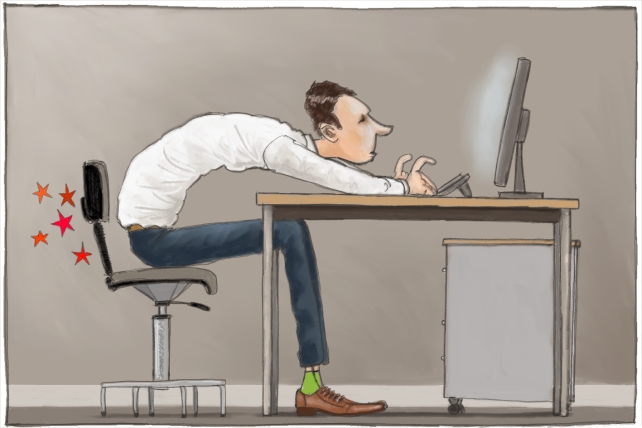But offsetting the impact easy
Sure the dangers of sitting all day are well-heard of, but with most jobs there isn’t much you can do about it, right? Not according to a new study, which looked into the impacts of prolonged sitting. Five minutes of light walking every half hour can help alleviate some of the increased risk that comes with sitting for long stretches of the day.
The scientific community has known for decades that sitting can increase risk of chronic diseases like diabetes, heart disease and certain types of cancers, said Keith Diaz, the study’s lead author and assistant professor of behavioral medicine at Columbia University Medical Center.
But until now there haven’t been clear guidelines about how long one should sit and how often be moving. Scientists don’t yet know exactly why sitting is so bad, but the working theory is that muscles are important in regulating things like blood sugar and cholesterol levels. But when you sit for too long, your muscles don’t have the opportunity to contract and operate optimally, Diaz said.
The walk can be as light as 1.9 miles per hour, which is slower than most people walk normally, Diaz said. The goal is to just break up the sitting. Several health markers were measured for different combinations of periods spent sitting and walking for the study.
Does five minutes every half hour still seem like a stretch? Even little “activity snacks” like one minute of walking every hour was shown to reduce blood pressure in study participants by a “sizable amount,” Diaz said.
Why your boss should greenlight it
Even with clearer guidelines, moving regularly may still seem unattainable if office culture doesn’t promote it.
“There are so many of us who lead inactive or sitting-based lifestyles or have sitting-based jobs,” Diaz said. “There are these social norms where if you are up out of your desk, people think you’re not working.”
Diaz has been working to convince employers of the importance of moving during the workday – not only for individual health, but for the bottom line, too.
“Sitting is an occupational hazard and a healthy employee is a more productive employee,” he said.
The team found that there were more than just physical health benefits for participants who broke up their sitting. They also found that it reduced fatigue and improved mood, Diaz said.
“Just sitting at your desk and grinding away for 8 hours actually may not be all that great if you’re just concerned about the bottom line about your work productivity,” he added.
And although standing desks are popular, they may not be the answer.
“I’m not sure there’s really solid scientific evidence that standing is really any better than sitting,” Diaz said. “I worry that people have this false sense that they are healthy because they are using this desk, and maybe they’re not actually that much better.”


